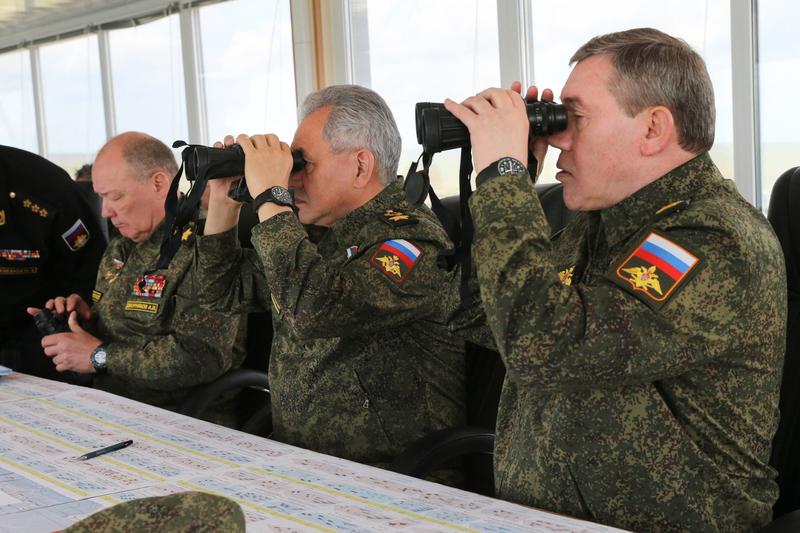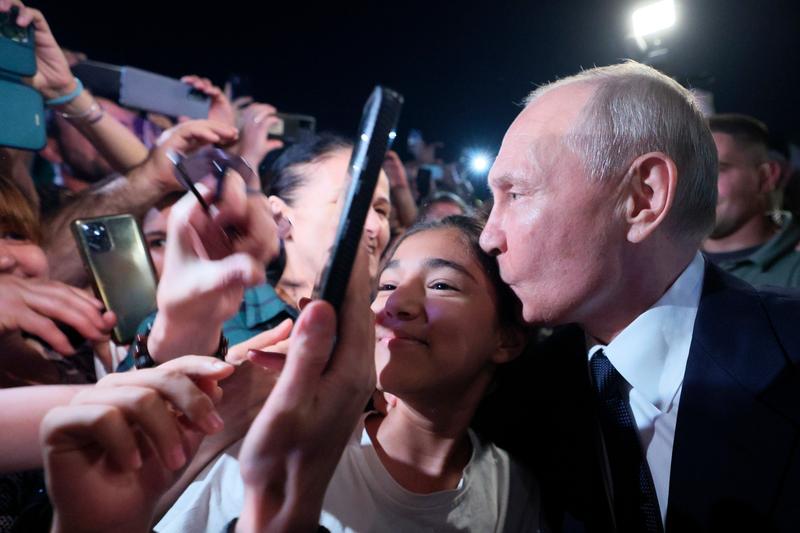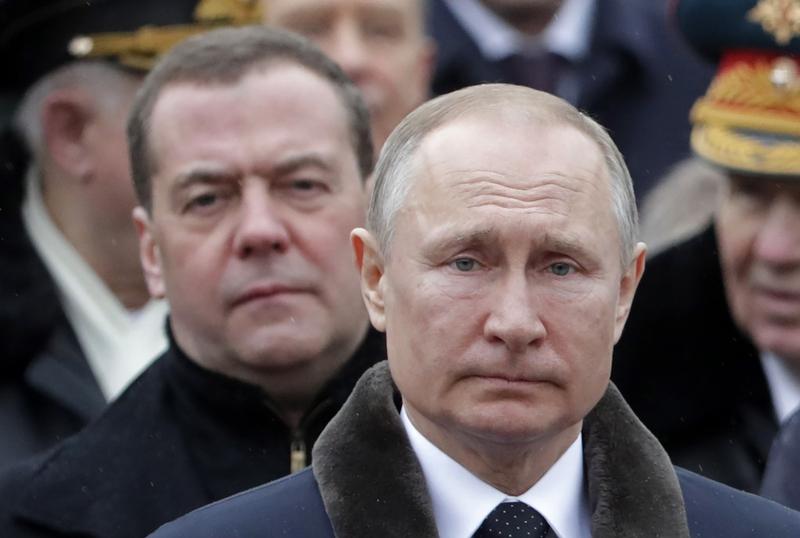
About 80 percent of Russia’s population identifies as ethnic Russians or Slavs, but the country is also home to more than 160 other ethnic groups — and tensions between minority groups and the state are resurfacing, especially as the war in Ukraine escalates.
In October, a native of Chechnya, Rustam Ajiev, known by the pseudonym Abdul-Hakim Shishani, traveled to Ukraine and joined a Chechen unit fighting alongside Kyiv against the Russian invasion. He is now 41 years old, but he started the war against Russia at the age of 19. For him, the conflict in Ukraine is just a continuation of the case he assumed then, reports Free Europe.
Ajiev is far from the only one in Russia who sees the war in Ukraine as a chance for ethnic minorities within the country to achieve greater autonomy or even independence.
Could some Russian states with non-Russian ethnic groups try to secede, as Chechnya did in the 1990s, out of resentment for Moscow and the war in Ukraine?
Opinions about the likelihood of such a scenario differ greatly
References to the possibility of Russian separatism and the disintegration of the Russian Federation currently come from two sides – periodic speculation from the West and statements by Vladimir Putin that the West seeks to achieve the disintegration of the country into its component parts, according to analysts quoted by Sky News.
There is no internal noise about separatism in the speech.
Elise Giuliano, an expert on ethnic identity in Russia at Columbia University’s Harriman Institute and author of Constructing Grievance: Ethnic Nationalism In the Russian Republics, said anti-government sentiment varies widely from one region of Russia to another, and Putin’s living conditions make it impossible to measure. public opinion on sensitive issues such as this.
If nothing else, the socio-economic impulses caused by the war and mobilization tied the regions closer to the center, regardless of the ethnic composition of the 83 federated subjects that make up the Russian Federation (85 after the Kremlin, which also included Crimea and Sevastopol , but Crimea is recognized as a territory of Ukraine under international law).

Serhii Soigu with General Valery Gerasimov Photo: Vadym Savitsky / TASS / Profimedia Images
Buryatia or Dagestan are more patriotic than other regions
Dagestan and Buryatia are the two poorest republics in Russia with GDP per capita, close to Bhutan and the Republic of Cape Verde, respectively.
Dagestan is one of the Russian regions where protests erupted in September 2021 against Vladimir Putin’s decision on “partial mobilization” in Russia.
Data collected by Russian investigative journalists show that this region of the Caucasus is one of those that recorded the highest human losses during the war in Ukraine.
- Read also: The history of two Chechen wars: Russia “wanted” and then “quick and clean” intervention
For these poor regions, a contract with the military means a lot of money
Some analysts point to the weakness of regional elites within Russia, saying Putin’s system has made regional leaders far more dependent on Moscow than their local constituents. In many cases, the real leaders of Russia’s ethnic minorities have either fled the country or faced persecution as “extremists” during Putin’s crackdown on dissent in recent years.
“Unlike the late 1980s and early 1990s, you don’t see any actor capable of building something based on centrifugal tendencies,” said analyst Mykola Petrov, quoted by Free Europe, comparing the current situation to the collapse of the Soviet Union, when local leaders became focal points of the independence movement in most of its 15 republics.
However, he added, “the collapse of the Soviet empire is not complete and may continue.” Within 15 years, we could see a “quasi-federal or confederate” state or even regions leading an autonomous existence.
But the government has invested heavily in efforts to ensure social stability by raising wages and pensions, and ensuring that payments to war veterans and their families remain stimulating.
Also, the loss of a family member on the battlefields in Ukraine does not necessarily turn against the war.
Maybe it’s better to believe that your son or husband died in vain and cling to the patriotic narrative you hear day in and day out rather than wondering what it was all for.
So republics with a mixed or predominantly non-Russian population, Buryatia or Dagestan, for example, tend to be just as patriotic, if not more patriotic, than others.
Visits, praise and money poured into these regions
Just a few days ago, Russian President Vladimir Putin took a surprise public bath in Dagestan, one of Russia’s poorest regions, after his grip on power was challenged by a military uprising by Wagner’s mercenaries.

Vladimir Putin in Dagestan Photo: Gavriil Grigorov / AP / Profimedia
In March, President Vladimir Putin awarded Nurmagomed Hajimagomedov the title of Hero of Russia and used the occasion to celebrate Russia’s ethnic diversity.
Gadzhimagomedov, a senior lieutenant from Dagestan, served in the Russian Air Force and was killed in action in the early days of the Russian war in Ukraine.
“I am Russian,” Putin declared as he announced the highest honor. “But when I see such examples of heroism as this young man, Nurmagomed Hajimagomedov – originally from Dagestan, Lak by nationality, I want to say: “I am Lak, I am Dagestani, I am Chechen, Ingush, Russian, Tatar.” , Jew, Mordva, Ossetian”.
He praised Gadzhimagomedov for his fight against Ukrainian “neo-Nazis”, adding that “I am proud to be a part of this world, of the strong and multi-ethnic people of Russia.”
- Read also: Russian soldiers died in Ukraine: young, poor and from national minorities
“The Buryats will not fight in this murderous war”… and yet
Buryatia in Siberia was once part of Mongolia, which was conquered by the Cossacks in the 17th century.
“We cannot determine our own policy – if we had a real federation, the head of our republic could say “no”, the Buryats will not fight in this criminal war. But he continues to give Putin cannon fodder,” Victoria Maladayeva from the Free Buryatia Foundation told Al Jazeera.
“Buryatia, like other ethnic republics, is governed by Moscow’s colonial policy,” Maladayeva continued.
“Our language and history are disappearing from the face of the earth, and Moscow is sucking all the money and resources from the province. Moscow is a beautiful city, but it is only a facade, because if you go a little further, the houses just fall down, there are no roads, there are no jobs.”
Shortly after the war began, Maladayeva, who now lives in San Francisco, joined with other members of the Buryat diaspora to create the Free Buryatia Foundation, the first peace movement led by ethnic minority leaders.
In addition to calling for greater autonomy from Moscow, the group makes anti-war videos, investigates the loss of Russians in Ukraine, creates a community for like-minded Buryats and helps future soldiers avoid being sent to the front.
Republic of Kalmykia and Ingria
“The collapse of the empire is obvious,” said Arslang Sanjiev, who presided over a congress of the Kalmyk people in October that adopted a declaration of independence for the Republic of Kalmykia, a predominantly Buddhist region in southern Russia along the lower reaches of the river. Volga, which also includes part of the coast of the Caspian Sea. “This is a natural historical process that has been radically accelerated by the Kremlin’s insane and ineffective domestic and foreign policy,” reports Free Europe.
Historian Maksym Kuzakhmetov lives in St. Petersburg and runs the Ingria without Borders Telegram channel. He stands for the independence of the historical region of Ingeria, that is, the territory around St. Petersburg, which was conquered by Peter the Great at the beginning of the 18th century. He stated that until recently activists openly protested with flags and slogans from England.
“I have been continuously meeting with like-minded people for several years and discussing the possibility of separation,” said Kuzakhmetov. “Only recently was it considered inadmissible and treason carries a criminal penalty.”
“We want to leave the empire,” says Bashkir nationalist Ruslan Gabbasov. “I won’t even call it the Russian Federation. A historic chance [pentru federalismul rusesc] it was lost when President Boris Yeltsin failed to outlaw the Communist Party and crack down on Communist officials and KGB agents, Gabbasov added. “And later he handed over power to Putin, a KGB officer.”

Vladimir Putin and Dmitry MedvedevPhoto: Mykhailo Metzel / TASS / Profimedia Images
Support for Putin’s policies has increased
In addition, local ethnic groups, especially Muslim minorities in the Caucasus, tend to have a more traditional outlook than ethnic Russians in major urban centers and are therefore closer to the paternalistic patriotic narrative espoused by their president, analysts cited by Sky News said.
Dissatisfaction with Moscow and the war in Ukraine has so far not manifested itself significantly in Russia.
Putin appears completely spontaneously in front of enthusiastic crowds in Derbent, certainly nothing to do with the opposition to Wagner’s reception in Rostov pic.twitter.com/uQPUVS2fBN
— max seddon (@maxseddon) June 28, 2023
To quote Denys Volkov of the independent polling institute Levada (declared a foreign agent in Russia): “The hostilities help to consolidate support for Putin and the state because they are understood as Russia against the West. If before the war a third of the population was against Putin and the authorities, now only 20%.”
If Putin’s regime falls, it will most likely be because the center fails, and fissures will appear in the security forces and/or the military, as we have just seen, and not along the old Soviet administrative lines.
If the government changes, the population, ethnic Russian or not, has little to do with it.
Sources: Sky News, Reuters, Al Jazeera, Free Europe, HotNews.ro
Source: Hot News
Ashley Bailey is a talented author and journalist known for her writing on trending topics. Currently working at 247 news reel, she brings readers fresh perspectives on current issues. With her well-researched and thought-provoking articles, she captures the zeitgeist and stays ahead of the latest trends. Ashley’s writing is a must-read for anyone interested in staying up-to-date with the latest developments.